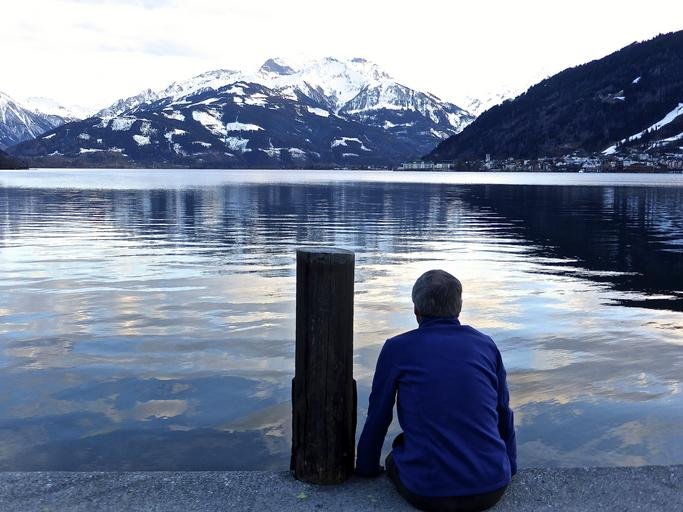Reflect
Reflection makes our own experience available to us in new ways.
Edith Wharton's autobiography, written after a rich life of travels and friendships and successful novels, is called A Backward Glance. At 385 pages, it's more than a glance. It's a long reflection on a life full of incident, privilege, and intelligent irony that in its copious way reminds us of the root meaning of the Latin word: reflectere--to bend back.
Originally used to describe what mirrors and ponds do, reflect later acquired the meaning of looking back thoughtfully, pausing over the past, or over something newly registered, to learn from it. Bending back is demanding: we relinquish the forward momentum that so often gives us the feeling we're "getting somewhere." We disengage from present occupations for a time--though not from our rootedness in the present moment--and redirect our attention to what we might more comfortably allow to be buried in the drifts of ongoing incident.
Reflection makes our own experience available to us in new ways. It's a step beyond remembering or recalling. Reflection begins with a question, often a deceptively simple one: What was that about? That feeling, that flicker of surprise, that sudden recoil. The question doesn't aim at a particular answer so much as opening a door that allows us to reenter a remembered moment or return to a paragraph or image that gave us pause and consider it from a new distance. Not a "clinical distance" or "academic distance," but rather enough distance to widen the frame and deepen the sense of context we bring to the experience that presents itself.
Other questions widen the scope of our reflections: Why might that encounter or passage or incident have stayed with me? Why does it still pique my curiosity or trouble my mind? What feelings did it awaken? What associations? How may that incident or "accident" become a personal parable? A teaching moment? Is it part of a pattern worth noticing? What was the invitation? If I accept the invitation to reflect, what will it require of me?
One measure of value in any practice is what it requires of you. If it requires little, it will yield little. Still, a practice of reflection can be both demanding and playful--deep and also fun. Rich reflection requires intention, patience, enough self-respect to notice without judgment even those patterns in your own life you might prefer to avoid. It might well begin with a question to sit with: What do I tend to avoid? What might I be hiding from myself? When do I get defensive? And if we choose to reflect on something outside ourselves, on what comes up when we enter silence, or on what an icon evokes, or on what a particular piece of music awakens, simply noticing and naming can deepen both appreciation and self-awareness, spiritual longing, and simple curiosity.
One question leads to another, and often to answers that may surface from the unconscious or may come from the angels we've been entertaining, unaware.

